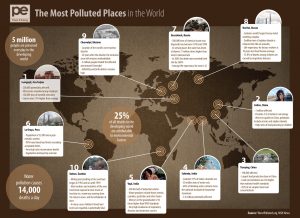A 13 year old boy in the US has discovered that if you apply a simple formula for distributing solar cells can drastically improve energy generation, upwards of 20-50% more power. He discovered this after studying trees and how the branches were positioned. What solutions could your students discover next?
Sign up and help to your students to design solutions for some of our toughest challenges- this is something we all can do!
How can you make a difference?
Rising sea levels have a huge impact on the wildlife around the world for example, sea turtles whose nesting beaches are disappearing and with increasing nest temperatures, scientists predict that there will be more female than male hatchlings, creating a significant threat to genetic diversity. Learn more about the sea turtles, and how climate change is endangering them.
 Share with your class this map of carbon dioxide emissions and learn more about your own carbon footprint, what does that mean and how does it impact on us? Why not work out your own carbon footprint using this site, or even find out what the footprint of a cup of tea would be. Or why not dig deeper into whether the internet is good for the environment or not?
Share with your class this map of carbon dioxide emissions and learn more about your own carbon footprint, what does that mean and how does it impact on us? Why not work out your own carbon footprint using this site, or even find out what the footprint of a cup of tea would be. Or why not dig deeper into whether the internet is good for the environment or not?
Use these images of the aftermath of the Deepwater Horizon oil disaster as stimulus for discussion about our global need for oil. Watch this film about the amount of oil that was lost during that spill and find out more about oil in the US and Canada.
Find out how the Carbon War Room, a global organisation, is harnessing the power of entrepreneurs to implement market-driven solutions to climate change.
Almost 80% of school waste could be composted. What does you class / school / family do to help recycle or compost waste?
How does this fit in my curriculum?
The challenge of climate change and how we protect our environment is a topic that could hav many entry points for the classroom, some of the key ones might be:
- Science (water cycle, learn about solar energy and run a project in school, explore how the position of solar cells makes a difference)
- Mathematics (how much energy is the school using? What is being wasted? what can you do to plan a reduction in fuel and energy costs?)
- Literacy (write information flyers and create websites or blogs that help people better understand their use of energy and what can be done to conserve it)
- Geography (how is our environment changing? What local effects are there? explore the physical impact of climate change)
Be sure to sign up to take part and as we approach October 25th please share your students’ ideas by submitting your reactions, videos, blog posts, pictures and plans for how technology might play a role in protecting our environment.
Credits to Daily Infographic